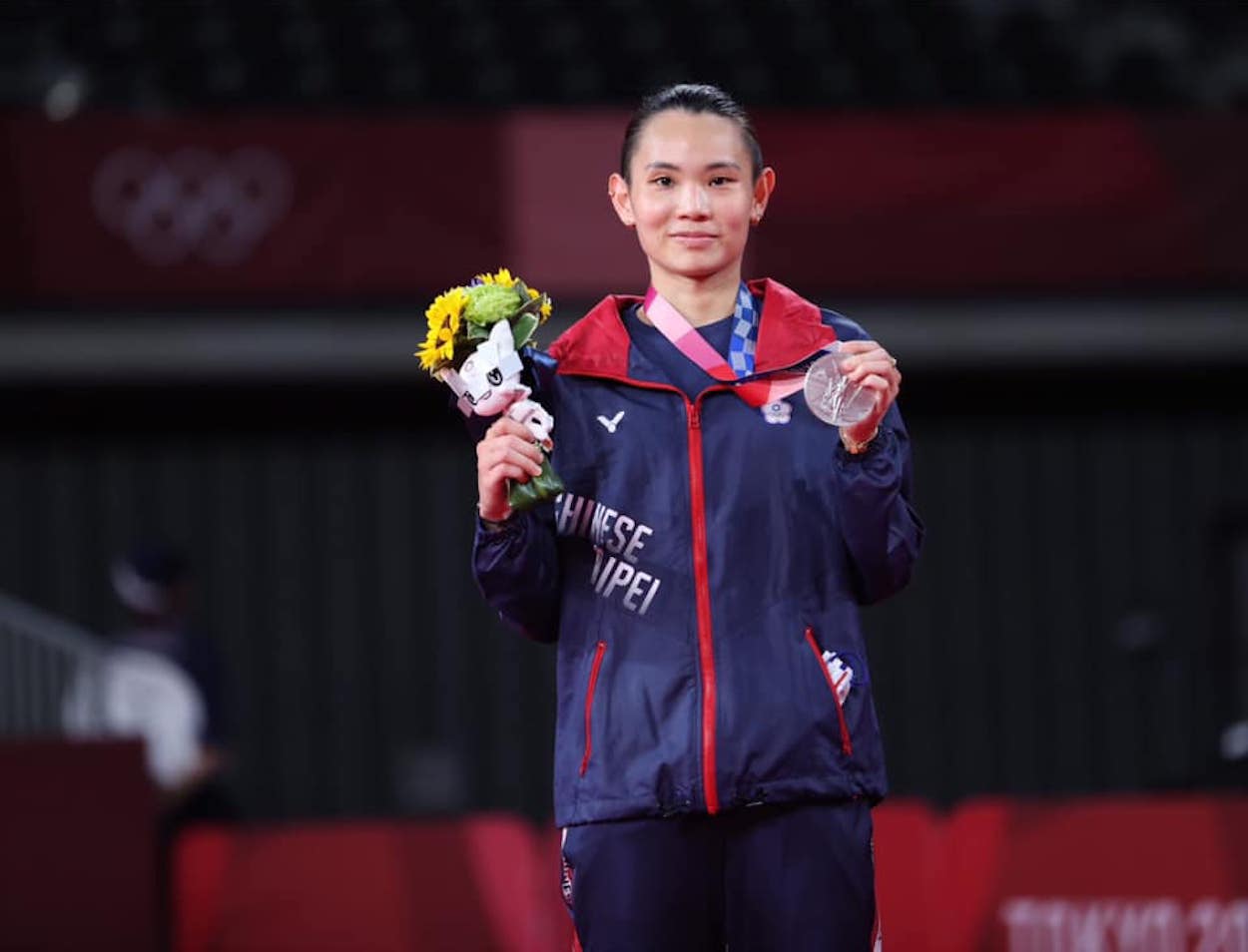by Brian Hioe
語言:
English
Photo Credit: Tai Tzu-ying/Facebook
SINGER-SONGWRITER Jolin Tsai and television host Xiao S, whose real name is Dee Hsu, are among the Taiwanese celebrities to have come under fire after expressing support for Taiwanese athletes at the Olympics. This proves the latest sporting incident in which identity issues between Taiwan and China have been flagged, with scrutiny occurring over posts on platforms banned in China.
In particular, Tsai was attacked by Chinese netizens after posting that she wanted to hug Tai Tzu-ying after her defeat to Chinese athlete Chen Yu-fei—resulting in a silver medal win for the world’s highest-ranked female badminton player. Hsu, who is best known as a television host and actress, was criticized for similarly expressing support for Tai after her defeat. Hsu also expressed support for Lee Yang and Wang Chi-lin, who beat China to win gold medal in men’s double’s badminton and likewise commented on the physical resemblance of some of the players to her sons. In particular, Hsu drew fire for referring to “national champions” on an Instagram post, leading to several Chinese brands including drink brand Shouquanzhai, shampoo brand Clear, and fashion brand JORYA to pull sponsorships with her.
Facebook post by Jolin Tsai about Tai Tzu-ying
Tsai and Hsu were criticized for congratulating Taiwanese athletes and not Chinese ones, as well as congratulating Taiwanese players for their victory over Chinese players. Sometimes this was with the accusation that they were supporting athletes that advocated Taiwanese independence, Lee Yang and Wang Chi-lin having taken to Facebook to emphasize that they were from Taiwan after his victory. Though this was not an explicit statement on Taiwanese independence, it was clearly read as such by Chinese netizens.
Sports match-ups have led to contestation between Taiwanese and Chinese in the past, sometimes revolving around the issue of Taiwan’s lack of interest in cheering for China. In past years, this has even extended to esports, with backlash against Taiwanese after the Asia section of Rift Rivals international tournament for League of Legends, which was held in Taiwan in 2017. This took place because the Taiwanese crowd cheered for the South Korean team over the Chinese team when the Taiwanese team was eliminated, were largely silent for the Chinese team, and quickly dispersed after a Chinese victory.
It is also the case that Taiwanese entertainers have been targeted in past years as a proxy for discontent against Taiwan from Chinese netizens. This has often been due to the perceived or real political views of Taiwanese entertainers. Namely, Taiwanese entertainers operating in the Chinese market are liable to be targeted with the accusation that they are secretly pro-independence—this regardless of what their actual views on the subject are. The most famous such incident took place shortly before 2016 elections, with Chou Tzu-yu, the Taiwanese member of South Korean girl group TWICE, accused of being pro-independence for waving the ROC flag in a video. Although this was an action that would hardly be read as pro-independence in a Taiwanese context, such subtleties were lost on nationalistic Chinese netizens.
Indeed, one notes that Dee Hsu, who moved to Beijing to host television talk shows in 2016, has been accused of pro-China sympathies in the past. Hsu notably lashed out at the Tsai administration for restricting mask exports out of Taiwan to ensure that Taiwan had an adequate supply of masks during the start of the COVID-19 pandemic, claiming that this was inhumane because it would prevent masks from being sent to China. This was a talking point that was adopted by the KMT early on during the COVID-19 pandemic to attack the Tsai administration, given the pro-unification stance of the KMT.
Facebook post by Wang Chi-lin on his and Lee Yang’s victory
It is probable that Hsu’s past stances did not matter to Chinese nationalists—the key point was simply being Taiwanese, which made her a target of scrutiny. There have been other incidents of Taiwanese with pan-Blue political views targeted for simply being Taiwanese with the accusation that they are pro-independence in the past, such as occurred with Ouyang Nana—the daughter of former KMT city councilor Ouyang Long—in 2019. This, too, included odd accusations against Ouyang, generally known for pan-Blue views, of being secretly pro-independence. Taiwanese celebrities have also come under fire for remaining silent during Chinese National Day or other patriotic holidays.
Nevertheless, the incident is likely to reinforce a sense of distance between Taiwan and China. Namely, this treatment of Taiwanese celebrities and backlash against Taiwanese victories simply drives home the point that Chinese do not, in fact, truly view Taiwan as part of China despite China’s territorial claims over Taiwan. Such moves, then, have the contradictory effect of pushing Taiwan further away from China. And while there have been some incidents of Chinese netizens celebrating Taiwanese victories over Chinese athletes as their own, this has instead been viewed as cognitive dissonance, in trying to co-opt Taiwanese victories that do not belong to China.



